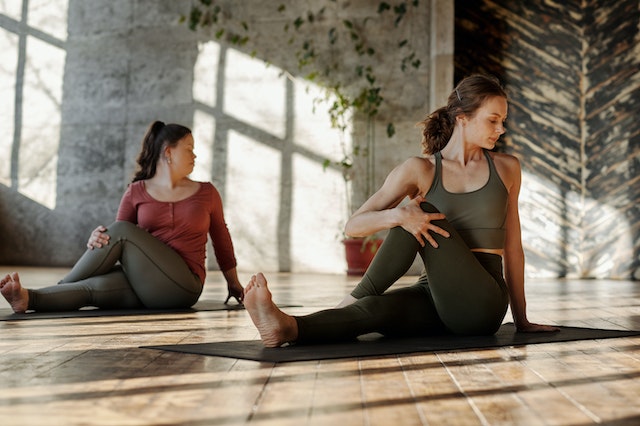The Importance of Mental Health: How Yoga Can Help
We frequently ignore our mental health amid the flurry of our fast-paced lives. However, maintaining better mental health is important for maintaining a balanced and gratifying lifestyle, along with physical fitness. Yoga has been practiced for thousands of years, originating in India as a holistic approach to physical,mental, and spiritual well-being. It combines physical postures (asanas), breathing techniques (pranayama), and meditation to create a balanced and harmonious effect on the body and mind. Research has shown that regular yoga practice can have a positive impact on various aspects of mental health.
Due to its many advantages, yoga, an ancient training with roots in India, has emerged as increasingly popular all over the globe. In this article, we will talk about the price of intellectual well-being and how yoga can help you for fostering both emotional balance and yoga for mental health.
Why Mental Health Matters
Mental health refers to our emotional, psychological, and social well-being. Good mental health allows us to handle life’s challenges, form meaningful relationships, and confidently pursue our goals. Conversely, poor mental health can affect every aspect of our lives, from work performance and relationships to physical health and overall quality of life.
Yoga and Mental Health
1. Reducing Anxiety:
Yoga’s capability to alleviate tension and anxiety is one of its many vital benefits for mental health. Yoga assists in triggering the frame’s rest response, which calms the worried machine and fosters an experience of tranquillity through conscious respiratory and gentle moves. Yoga can assist humans in dealing better with the stresses of life by reducing the results of lengthy-term strain and anxiety.
2. Mindfulness and Self-Awareness Cultivation:
Yoga promotes mindfulness, which entails being gifted and aware of the instant. Yoga allows people to broaden their mindfulness by instructing them to take note of their respiratory and bodily sensations. Because of their multiplied self-attention, human beings can better understand and deal with their negative emotions and cognitive patterns, promoting emotional resilience and a good lifestyle mindset.
3. Improving Emotional Regulation:
Yoga education can enhance emotional regulation, allowing people to react to the ups and downs of life greater skillfully. Yoga offers humans the equipment they need to manipulate their emotions in a healthy, balanced way by encouraging self-compassion and self-recognition. This emotional steadiness is critical for retaining mental health.
4. Improved Sleep:
Poor sleep is often linked to mental health issues. Yoga can help regulate sleep patterns by reducing insomnia symptoms, improving sleep quality, and increasing feelings of refreshment and energy upon waking.
In the end, it is important to prioritize and nurture one’s intellectual health due to the fact it’s a vital thing for general well-being. A holistic technique for emotional nicely-being and mental health is provided with yoga for mental health, which has considerable fine outcomes on mental health. Through yoga, humans can learn how to control their emotions higher, construct mindfulness and self-awareness, and decrease strain and anxiety. Yoga has an extended history and robust roots in the Indian subculture. It has been proven to be a powerful method for reinforcing each bodily and intellectual wellness.
So why no longer unfold the yoga during a spoil for your busy schedule? Join yoga on this voyage of self-discovery and mental fitness. There is a yoga fashion that could meet your necessities and choices, whether you are an amateur or a sophisticated practitioner. Accept the benefits of yoga for mental health and revel in how it could improve your existence. Always hold in thoughts that residing in a balanced, happy, and complete existence calls for wholesome thoughts.
Disclaimer: The views/suggestions/recommendations in this article are the personal views of the blogger only based on their assessment. Viewers/readers are expected to do their own due diligence before practising the above. Please consult your physical trainer, doctor, nutritionist, health expert before using/implementing any of the inputs suggested above. If you experience any discomfort due to the inputs mentioned above, kindly consult your doctor/health expert.

